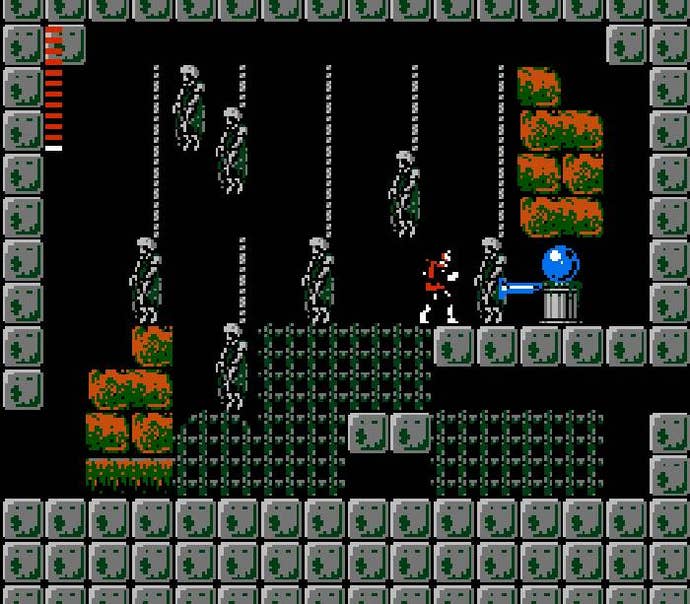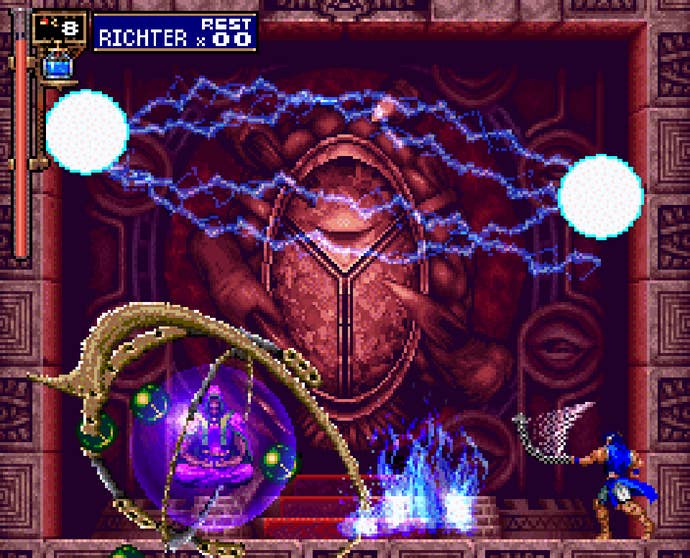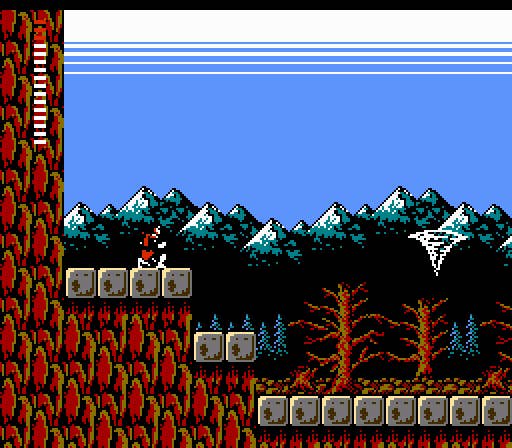Castlevania: Symphony of the Night Wouldn't Have Happened Without Castlevania 2: Simon's Quest
From a horrible curse comes a symphony.
This article first appeared on USgamer, a partner publication of VG247. Some content, such as this article, has been migrated to VG247 for posterity after USgamer's closure - but it has not been edited or further vetted by the VG247 team.
I talked to Koji "IGA" Igarashi at PAX West in Seattle last weekend—after I took a minute to sort myself out (I never thought about how a dog must feel when its owner simultaneously throws five tennis balls in its face, but I guess it's like how it feels to talk to a game developer as prolific as Igarashi for the first time). We discussed how he's adapting to the indie life, the challenges of funding a game via crowd sourcing, and how Bloodstained: Ritual of the Night is coming along.
We also discussed his work on Castlevania, because I can't help myself. Castlevania: Symphony of the Night is one of my favorite games of all-time, but I've been a Castlevania fan since I played Castlevania II: Simon's Quest on the NES as a little girl.

Igarashi is famous for his work on Symphony of the Night, but Simon's Quest was published before he started working at Konami. Igarashi is already on-record as a big fan of Castlevania III (where Symphony of the Night's Alucard debuted), and Castlevania: Rondo of Blood for the PC Engine is also a major inspiration for Symphony of the Night. Igarashi clearly has an appreciation for retro Castlevania games, so I asked him if Simon's Quest influenced the development of Symphony of the Night in any way.
Igarashi confirmed Simon's Quest had a big influence on his breakout PlayStation title. In fact, the positive reception Simon's Quest received in 1987 helped Igarashi pitch Symphony of the Night to Konami in the first place.
"[Simon's Quest] actually played a very important role for Castlevania: Symphony of the Night. Before Simon's Quest, games didn't [delve] much into RPG elements like exploration," Igarashi told me through a translator. "Simon's Quest had that foundation [of exploration]. It was easier for us to let the higher-ups know [Castlevania] works with exploration, and that we wanted to put more of that into [Symphony of the Night]."

When Konami's big bosses were presented with evidence of Castlevania and exploration meshing well in the past, they agreed to let Igarashi walk his preferred path with Symphony of the Night. Moreover, memories of Simon's Quest helped sell Symphony's "new" exploration-heavy format with hardcore Castlevania fans who equated the series strictly with whipping, jumping, and hardcore platforming.
"Castlevania fans have very strong opinions," Igarashi laughed. "Around the time we created Symphony of the Night, there were a lot of fans of the older games who were opposed to it. But because there was Simon's Quest, it was a lot easier to change things around."
I praised Castlevania II: Simon's Quest in a piece I published here on USgamer a year ago. Though rough around the edges and often vague—like most NES adventure games, let's be honest, here—I found myself enthralled by it for the same reasons as Igarashi: I loved being able to meander around the scarred Transylvanian countryside at my own pace. I loved visiting towns and fighting monsters. Best of all, unlike most NES games developed in the '80s, Simon's Quest doesn't penalize you too badly for failure. You have unlimited continues, and when you die, you almost always re-start at the same spot you carked it.

Similarly, Symphony of the Night is more interested in letting you roam Castlevania than forcing you to conduct complicated feats of platforming. I was initially surprised to learn Simon's Quest played such a big role in Symphony's development (I expected a passing comment at best), but when I compare the two side-by-side now, the shared heritage is obvious.
Not that Igarashi didn't leave at least one of Simon's Quest's more nefarious traits to languish in history:
"One thing we wanted to avoid was—well, all the villagers in Simon's Quest lie. We said, 'Let's not do that.'"
Disclosure: USgamer is owned and operated by ReedPop, which also runs the PAX family of shows.

